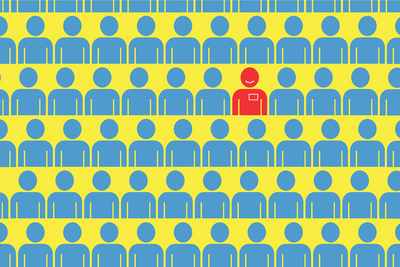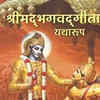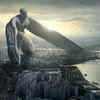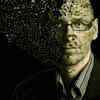
The Paradox of Divine SelectionHistory, philosophy, and personal experiences repeatedly reveal a strange paradox—those chosen by God often find themselves rejected by society. Whether prophets, philosophers, revolutionaries, or enlightened souls, they walk a lonely road. Instead of recognition, they face opposition. Instead of celebration, they are often met with skepticism or persecution. Why does humanity turn away from those divinely ordained? Is it because these figures disrupt the comfortable illusions of the world? Or is it because the collective consciousness of humanity cannot comprehend the weight of divine purpose? This article delves into this profound contradiction, exploring historical, philosophical, and personal dimensions of why those truly chosen by God are rarely accepted by men.
Bhagavad Gita: Divine Wisdom and Human Rejection

The Bhagavad Gita offers profound insights into the struggles of those chosen by divine will. One of the most relevant shlokas is:
"वासुदेवः सर्वमिति स महात्मा सुदुर्लभः"
(Bhagavad Gita 7.19)
("After many births and deaths, he who is actually in knowledge surrenders unto Me, knowing Me to be the cause of all causes and all that is. Such a great soul is very rare.")
This verse highlights that those who attain divine wisdom are extremely rare. Most people remain trapped in ignorance and illusion, unable to recognize true spiritual greatness. This explains why history has repeatedly seen divine figures suffer rejection before being acknowledged.
Another shloka that resonates deeply with the theme is:
कर्मण्येवाधिकारस्ते मा फलेषु कदाचन।
(Bhagavad Gita 2.47)
("You have the right to perform your prescribed duty, but you are not entitled to the fruits of your actions.")
This teaching aligns with the struggles of prophets and enlightened beings who persist in their divine mission despite rejection, knowing that their work is for a higher purpose beyond human validation.
Truths Beyond Human Comprehension

Philosophy offers a deeper understanding of why divine figures are rejected. Advaita Vedanta, a school of Hindu philosophy, speaks of Maya (illusion) and Brahman (ultimate reality). Most people live in ignorance, trapped in illusions of material existence. When an enlightened being sees beyond this illusion and tries to guide others toward truth, they face hostility. The collective mind fears the destruction of comfortable beliefs.
This idea is mirrored in Plato’s Allegory of the Cave—where prisoners in a cave see only shadows and believe them to be reality. When one prisoner escapes and discovers the real world, he returns to share the truth. But instead of being hailed as a liberator, he is ridiculed and rejected. This allegory perfectly explains why society often opposes divine messengers—humans resist what they do not understand.
Nietzsche’s concept of the Superman also aligns with this theme. Nietzsche believed that individuals who rise beyond societal norms and moral codes to become truly great are often misunderstood and opposed. The masses cling to familiar patterns, while the enlightened few walk alone. Even Buddha, despite his infinite wisdom, faced resistance from orthodox Hindus of his time. The journey of a divine soul is a solitary one, for truth is not always welcome in a world of illusions.
Why Humanity Rejects the Divine

Beyond philosophy, psychology explains why people reject those chosen by God. One reason is cognitive dissonance—the discomfort people feel when confronted with truths that challenge their beliefs. Instead of accepting a new reality, people often attack the source of their discomfort.
Another factor is social conditioning. Humanity is wired to follow authority, traditions, and societal structures. When someone disrupts these patterns, they are seen as a threat. Jesus, Buddha, and Socrates all questioned established norms, which led to their rejection.
There is also the fear of transformation. A divine message demands change, and change is uncomfortable. The familiar—even if flawed—is often preferred over the unknown. This is why even in modern times, whistleblowers, visionaries, and reformers are often vilified before they are celebrated. The world first fights those who challenge it, only to later glorify them when their ideas become mainstream.
Walking the Path of the Chosen

On a personal level, this idea resonates deeply with anyone who has ever felt misunderstood. If you have ever pursued a higher truth, walked a different path, or stood firm in your beliefs against opposition, you have experienced this phenomenon firsthand. Being chosen by God—or being aligned with a higher purpose—often comes with isolation. The world rewards conformity, not transformation.
But history teaches us that rejection is not a sign of failure—it is proof of walking a path that is beyond the ordinary. Jesus was crucified before he was worshipped. Socrates was sentenced to death before he became a philosophical legend. Galileo was imprisoned before being recognized as a scientific genius. If you feel unseen, unappreciated, or misunderstood, it may be because you are seeing something others cannot yet comprehend.
Conclusion: The Ultimate Test of the ChosenBeing chosen by God is not an honor in the conventional sense—it is a responsibility that comes with trials. History, philosophy, and personal experiences confirm that divine wisdom is rarely welcomed by humanity at first. The world rejects what it does not understand, and those who bring truth must endure solitude before their light is acknowledged.
Yet, this should not deter those who walk this path. If you find yourself standing alone in your truth, take heart. The greatest souls in history were once misunderstood. The world may not choose you today, but divine selection operates beyond human validation. Walk forward, knowing that in the end, the truth always prevails.
 The Paradox of Divine SelectionHistory, philosophy, and personal experiences repeatedly reveal a strange paradox—those chosen by God often find themselves rejected by society. Whether prophets, philosophers, revolutionaries, or enlightened souls, they walk a lonely road. Instead of recognition, they face opposition. Instead of celebration, they are often met with skepticism or persecution. Why does humanity turn away from those divinely ordained? Is it because these figures disrupt the comfortable illusions of the world? Or is it because the collective consciousness of humanity cannot comprehend the weight of divine purpose? This article delves into this profound contradiction, exploring historical, philosophical, and personal dimensions of why those truly chosen by God are rarely accepted by men.
The Paradox of Divine SelectionHistory, philosophy, and personal experiences repeatedly reveal a strange paradox—those chosen by God often find themselves rejected by society. Whether prophets, philosophers, revolutionaries, or enlightened souls, they walk a lonely road. Instead of recognition, they face opposition. Instead of celebration, they are often met with skepticism or persecution. Why does humanity turn away from those divinely ordained? Is it because these figures disrupt the comfortable illusions of the world? Or is it because the collective consciousness of humanity cannot comprehend the weight of divine purpose? This article delves into this profound contradiction, exploring historical, philosophical, and personal dimensions of why those truly chosen by God are rarely accepted by men.



